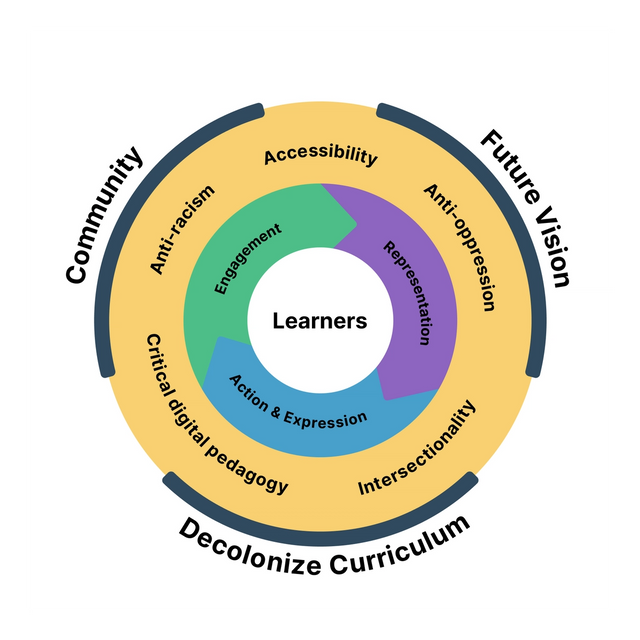Learning Objectives

Upon completion of this module, you will be able to:
- Explore the impact of barriers on diverse student engagement.
- Develop learning spaces that welcome and engage learners’ interests and lived experiences.
- Analyze the importance of social inclusion and intersectionality in learning environments.
- Identify strategies for promoting active participation and motivation in diverse learning contexts and spaces.
- Reflect on how curriculum design and teaching practice can engage diverse learners.
In this module, we will focus on the ways learners are connected to, make meaning of, and feel about their learning experiences and environments. The UDL principle of Multiple Means of Engagement (the "why" of learning) looks at how learners appraise their learning: “How does this fit with my goals, values, and experiences? Is this good for me, bad for me, exciting, frightening, supportive, or threatening? Am I relaxed, interested, at risk?” These appraisals determine how learners feel engaged and how they are motivated to pursue challenges. All learning is influenced by this highly individualized affective filter.
This UDL principle also has a very important connection to anti-oppressive frameworks and decolonizing educational systems. An institution’s or instructor’s values are modelled through the pedagogical choices that are made, and thus, inform the engagement experience.
As in the previous module, we welcome you to continue to reflect on your UDL practice through reflection prompts and any other ideas that come to mind as you explore the module’s content and activities.
Why is it important for learners to feel engaged in learning?